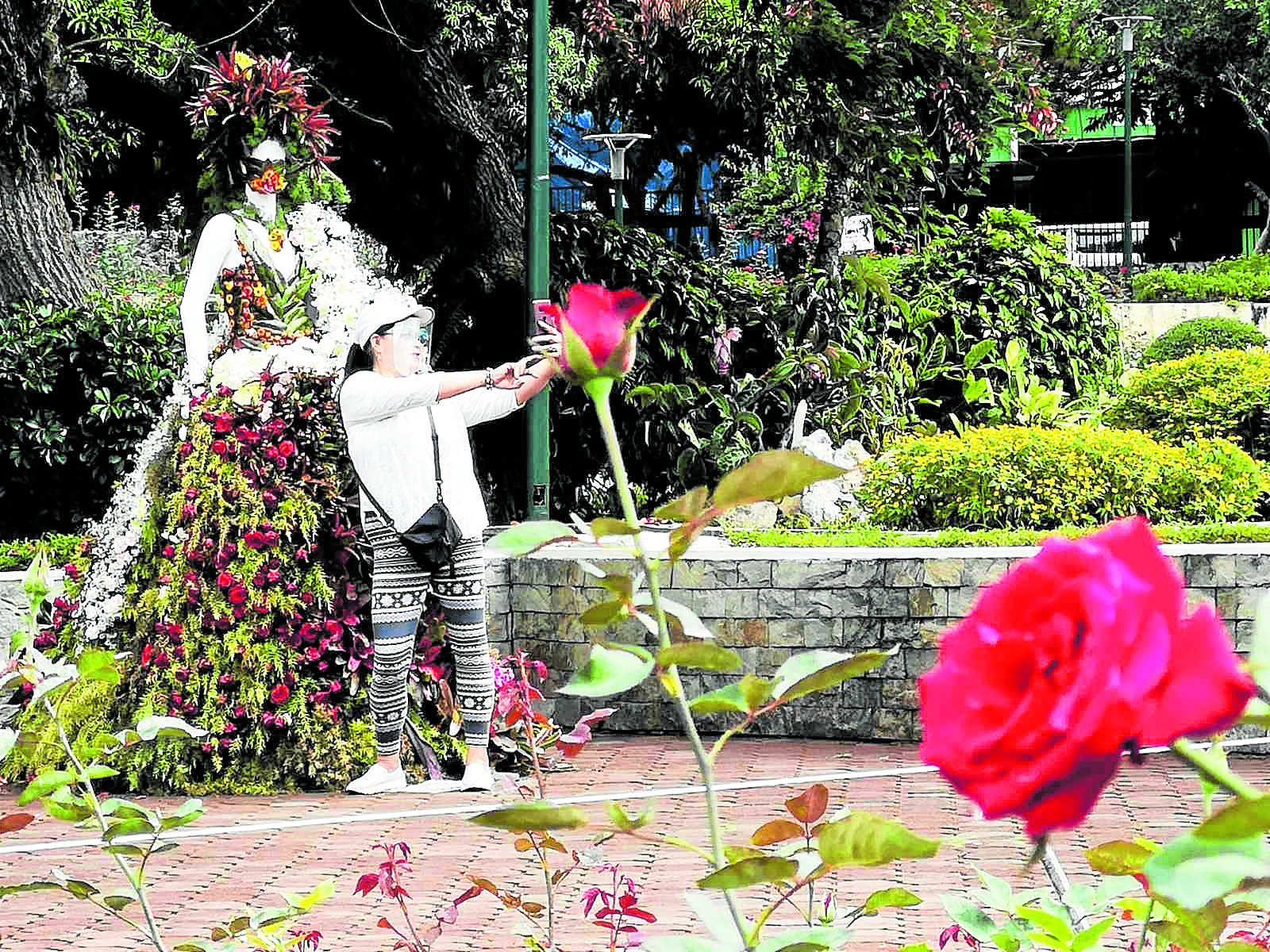
SELFIE SPOT A visitor at Burnham Park in Baguio City takes a “selfie” with a mannequin dressed in a gown made of fresh flowers. The city government is offering unique attractions, like a version of the summer event “Flores de Mayo,” as the local tourism industry tries to bounce back from the impact of the COVID-19 pandemic. —EV ESPIRITU
BAGUIO CITY — Mannequins dressed in gowns made from locally grown flowers and plants have been drawing people to Burnham Park, one of the city’s top attractions.
The floral gowns were put on display at the park’s Rose Garden in a version of the summer event “Flores de Mayo,” a crowd-drawing activity that will not be staged because of restrictions aimed at curbing the spread of COVID-19.
These mannequins have become “selfie” backgrounds for families who visit the park with their children for a breath of fresh air.
“The activity is not really the same as the religious Flores de Mayo, of course,” Aloysius Mapalo, city tourism officer, said on Tuesday.
The Catholic festival honoring the Virgin Mary is highlighted by the “Santacruzan” (Spanish term for Holy Cross) parade, which features local beauties dressed by the community’s fashion designers.
The last time a version of the Flores de Mayo was held in the city was on May 31, 2019, when an evening parade was held from Baguio Cathedral to downtown Session Road.
The gowns displayed this year at Burnham Park were created by local designers and wedding planners for a competition. The exhibit will run until May 30.
According to Mapalo, these creations offer a glimpse of tourism-related activities that are evolving as the country deals with the pandemic.
This is the second summer since the pandemic struck when Baguio barely had tourists.
Tourism drop
Last year, the city recorded a little over 60,000 visitors, including those on business trips, when Baguio officially reopened its borders to leisure travel in October after quarantine eased to help jump-start the economy. That number grew to 87,000 by March.
But with the pandemic still raging, “we can’t force the usual tourism influx to Baguio for now,” Mapalo said.
Instead, the lull has allowed the Baguio government and its tourism-oriented industry to focus on rehabilitating or producing new “tourism products,” he said.
Mapalo said a much larger Flores de Mayo event could be “among new attractions that can be very distinct to Baguio and, more importantly, reflects what we are as a city and as a people.”
“We would like to emphasize two distinct identities of [Baguio]—it is a city of flowers and it is also the country’s first city to join the creative cities network of the United Nations Educational, Scientific and Cultural Organization,” he said.
—VINCENT CABREZA